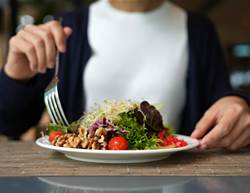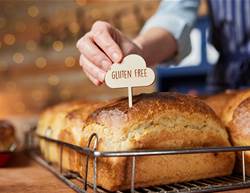What’s the first thing you do when you finish a workout? Drink water, sure, but what next? If you’re racing to the shower, hit pause. Before you tick off the next task, have a small bite. More specifically, reach for one of the best foods for muscle recovery.
“Within an hour post-workout, we want to replenish our fuel reserves and support muscle recovery by eating a snack, not a large meal, that includes carbohydrates and protein,” said registered dietitian nutritionist Melissa Mroz-Planells. These nutrients help restore glycogen, the stored form of glucose your body prefers for fuel during exercise.
So what should you eat? Below, sports nutrition experts share the best snacks to reach for after a workout, the ones to skip and smart tips to help you maximise recovery and the results from your training plan.
Best foods to eat for muscle recovery
Chicken
Chicken breast is high in protein and ideal for muscle repair, said exercise physiologist Jim White. Lean protein sources like chicken, fish, tofu and beans provide essential amino acids for repair and growth, added registered dietitian Valerie Agyeman.
Whole grains
Include complex carbohydrates such as wholegrain bread or wraps in your post-workout snack. They deliver B vitamins, iron, zinc, magnesium and copper to aid recovery and refuel you for the next session, said White.
Sweet potatoes
Sweet potato is a complex carbohydrate that helps replenish glycogen and support muscle recovery, said Agyeman. It also contains copper to help maintain healthy muscle tissue and vitamin C to limit muscle breakdown.
Quinoa
Like sweet potato and other wholegrains, quinoa helps restock glycogen stores, said Agyeman. It’s also a useful plant protein for anyone following a vegetarian or vegan diet after training.
Salmon
A top source of high-quality protein plus omega-3 fatty acids that help dial down inflammation, said White. Studies suggest omega-3s can ease post-exercise muscle soreness. Some inflammation is a natural part of building muscle, but keeping prolonged inflammation in check supports faster recovery.
Chocolate milk
Milk delivers both quality protein and carbohydrates to support muscle protein synthesis and restock glycogen, said White. “Chocolate milk specifically offers the 3:1 carb to protein ratio that benefits recovery after tough workouts. Milk is also nutrient-dense, providing 13 essential nutrients in about 250 mL that can help our body function at its best,” he added.
Cottage cheese
Half a cup packs around 12 g of protein, including leucine—a key branched-chain amino acid for repair, said White. “Cottage cheese also contains casein, a slow-release protein that can fuel muscle protein synthesis.” If you train at night, it’s a smart pick. “Because it’s slowly absorbed, research suggests that consuming casein before bed can support overnight muscle recovery and future performance,” said White. For a simple recovery dessert, blend cottage cheese with cocoa powder and top with berries for extra antioxidants.
Eggs
Eggs provide easily digested, high-quality protein and choline, an essential nutrient for brain and muscle function, said White. Some varieties are fortified with omega-3s, which may further help manage inflammation.
Bananas
Rich in carbohydrates and potassium, bananas help refuel muscles and support normal contraction. They’re also extremely portable, so you can keep one in your gym bag for an immediate post-session snack.
Spinach
Spinach and other leafy greens are loaded with anti-inflammatory nutrients including calcium, potassium, magnesium, iron and zinc. Spinach also supplies protein and antioxidant flavonoids that help temper excess inflammation which can slow recovery.
Berries
Blueberries, raspberries and other berries are packed with antioxidants that reduce inflammation and support overall recovery, said Agyeman. They also provide carbohydrates and sirtuins—proteins involved in metabolism, inflammation and cellular longevity—that play a meaningful role in muscle repair.
Foods to avoid after exercise
Pick your post-workout fuel with care. Our experts flag these as poor choices straight after training:
- Alcohol – dehydrates and interferes with muscle protein synthesis, which slows recovery, said White.
- Salty foods – encourage fluid retention and swelling, making it harder to bounce back, said White.
- Sugary foods – cause a sharp blood-glucose spike then a crash, which can sap energy when you need to refuel, said White.
- Ultra-processed foods – often come with additives and poor-quality fats that drive inflammation and delay repair, said White.
- Very spicy foods – can be tough on the gut right after a hard session, noted Mroz-Planells.
- Veggies on their own – great nutrition, but not enough carbs and protein for immediate recovery.
And remember, perfection isn’t required. “Eating something is always better than eating nothing,” said White. Aim for a quick snack you tolerate well that pairs carbohydrates with protein to re-stock glycogen and support muscle repair.
Other strategies to support muscle recovery
Outside of fueling your body with food, there are many other things you can do to aid in your post-workout revival. Here are some expert tips on what you should include in your muscle recovery routine:
- Stretching: Helps loosen tight muscles, improve circulation, clear lactic acid and support relaxation, said White. “Static stretching is better post-workout once your muscles are warmed up,” noted Mroz-Planells, as opposed to before you start.
- Hydration: Refill fluids promptly. “Plain water is preferred over a sports drink unless you engage in moderate to high-intensity exercise,” she advised.
- Sleep: Prioritise quality rest to drive repair and growth. “It is recommended to aim for 7–9 hours of sleep each night to allow your body to fully recover so you can perform at your best,” advised White.
- Compression boots: “Leg air compression devices can help improve blood circulation, leading to faster muscle recovery,” said White.
- Active recovery: Light movement boosts blood flow, reduces soreness and stiffness and improves mobility. “Examples are swimming, walking, jogging, yoga and foam rolling,” said White.
- Massage: Can improve circulation, loosen muscles, expand range of motion, lift sleep quality and decrease inflammation, said White.
- Ice baths: Often used to blunt soreness and swelling. “Ice baths are known to help flush out lactic acid to aid in reducing soreness after workouts,” he explained.
Mix these habits with smart post-workout nutrition and you’ll bounce back faster between sessions.










